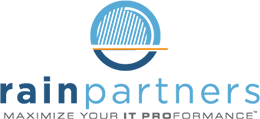Why Face-to-Face Meetings are Underrated
 Last Friday, Jason Fried (of the software company 37signals) posted a strong proposition to Inc’s blog. The post’s title says it all- Why Face-to-Face Meetings are Overrated.
Last Friday, Jason Fried (of the software company 37signals) posted a strong proposition to Inc’s blog. The post’s title says it all- Why Face-to-Face Meetings are Overrated.
Fried asks a simple question: face-to-face may provide an exceptional environment for generating big breakthrough ideas, but how many big breakthrough ideas can your company really process at any given moment? Big breakthrough ideas often take months to bring to reality, and having too many brilliant concepts to work through often leads to none of those ideas actually manifesting.
Strong point, though its many shortcomings immediately come to mind. Different companies, different types of work, and different problems all have different appetites for big, breakthrough ideas. If you’re developing software programs, as Fried’s company does, then you may only need to meet a couple times a year to come up with concepts for new programs. If you’re in a creative field, such as marketing, then you need to produce a steady stream of great new ideas every day. And if your company is new, or in crisis, or otherwise undergoing a lot of change, then you need all the great ideas and collaborative insights you can get your hands on.
Fried understands this, I’m sure. He’s an intelligent guy running a successful company. He knows context matters. But he makes a one-size-fits all prescription in this post because, well, he’s writing a blog post, not a dissertation on the subject of remote work. He doesn’t need to uncover every possible permutation for every possible work requirement to make his argument.
I’m not opposed to remote work.
Many of my colleagues spend some, if not most, of their time working outside of our main offices. This time is productive for them, and they’re able to act on and develop the big breakthrough ideas we generate during our shared time together in the office.
But regularly being in the office together means more than generating big breakthrough ideas. It also means generating all those little breakthrough ideas you need to bring a large project to completion. It means building trust and credibility with each other (something completing deliverables and meeting commitments only offers halfway). And it means developing the sorts of personal relationships that are important for everyone’s current and future career success.
There’s a world of difference between receiving a quick professional recommendation of “this guy can get the work done,” and receiving a longer, detailed, personally informed evaluation. The first qualifies that you can meet an organization’s short-term needs, the second demonstrates your ability to meet their ongoing demands in a series of increasingly prominent positions.
Remote work arrangements can certainly accomplish what Fried calls “the work of work,” but you hold greater responsibility (to your stakeholders and your own career) than just completing the tasks you’re assigned.


